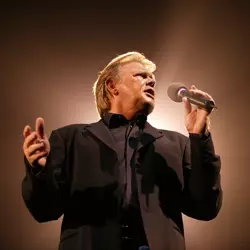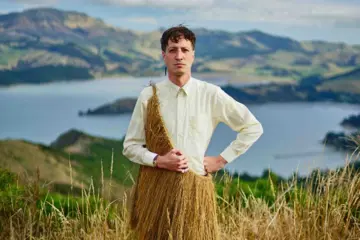 John Farnham
John FarnhamJohn Farnham and the Uluru Dialogue – the minds behind the Uluru Statement from the heart – are making a powerful declaration for the Yes campaign on the referendum to send a First Nations Voice to parliament.
Farnham has lent his classic, untouchable tune, You’re The Voice, to the campaign. It’s the first time the Australian icon has permitted the use of the song in a commercial.
“This song changed my life. I can only hope that now it might help, in some small way, to change the lives of our First Nations Peoples for the better,” Farnham explained in a press release.
You’re The Voice is the new film for the Uluru Dialogue’s History Is Calling campaign. The new commercial, set to premiere tonight, starts in the 1980s – when You’re The Voice was released – and tracks significant Australian milestones over the decades.
The commercial shows the 1967 referendum, the Mabo decision, the America’s Cup, the Uluru handback, Cathy Freeman winning her gold medal, the 1996 gun reform, the 2008 apology and the marriage equality referendum.
Don't miss a beat with our FREE daily newsletter
Professor Megan Davis, Cobble Cobble woman and co-chair of the Uluru Dialogue, said in a statement, “You’re The Voice is the nation’s unofficial anthem. I was in primary school when it was released and, as a young girl, instantaneously felt the power of its message about agency and walking together. It is an empowering message.
“History isn’t just something we witness and observe, but something we ourselves can influence. And now we all have a voice in what happens at this critical moment and must use it.”
Professor Davis added, “We are proud to finally announce and launch the use of this iconic song and partnership between John Farnham and the Uluru Dialogue. The number one question Aussies have asked me for six years is, ‘Have you thought of Johnny Farnham and You’re The Voice?’.”
“We hope You’re The Voice will show Australians that we all have a role to play in making this referendum a success and that it will inspire people to walk with us on this movement for a better future.”
Tim Wheatley, the son of Farnham’s close friend and late manager Glenn Wheatley, added that the classic Farnham tune is “not aligned with any political party. It is aligned with humanity. It’s a song for all Australians. Always has been, always will be.”
Wheatley continued to say, “Win or lose this referendum; this song will forever remain on the right side of history. Both John and my father have fiercely protected this song’s use for decades, I think, for this very moment.”
Pat Anderson AO, Alyawarre woman and co-chair of the Uluru Dialogue, added, “When it matters most, Australians show up for each other. You’re The Voice is archival proof of the people of this country using their voice to show up and stand on the right side of history. We’ve made history before, and very soon, we will have the chance to do it again.
“The Voice is a simple proposal. Listening leads to better decisions. This is a proposal supported by 83 per cent of First Peoples because they know when we have a say, it means better outcomes for our communities for generations.”
The You’re The Voice for the History Is Calling campaign airs tonight at 7 PM via the Uluru statement website.
The video was directed by Kaytetye man and award-winning feature film director and cinematographer Warwick Thornton, who’s filmed a commercial for the first time.
On Friday, Paul Kelly showed his support for the Yes campaign by unveiling the powerful new song, If Not Now. His track came just weeks after Aussie rockers GANGgajang revealed that they were saying Yes to The Voice campaign with a new single, Speak To Me.
If the referendum is successful, The Voice will be an independent and permanent advisory body led by Aboriginal and Torres Strait Islander peoples who will advise the Australian Parliament and Governments on issues that directly face their communities.
The Voice body will be chosen by Aboriginal and Torres Strait Islander people, with the wishes of their communities represented.
















